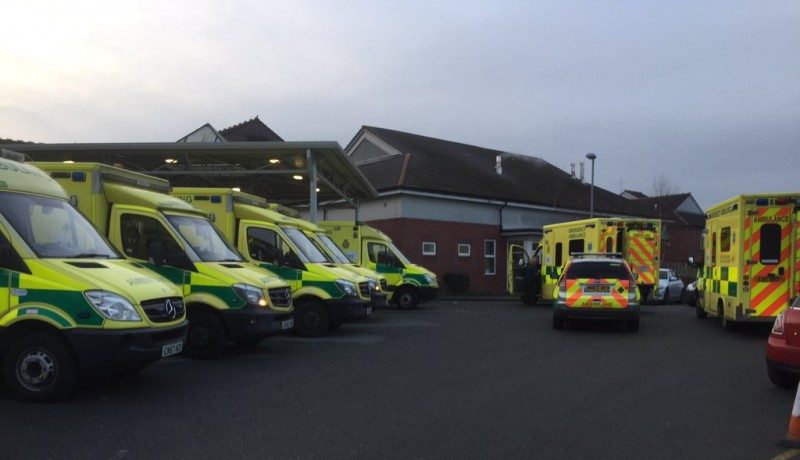Health boards across Wales urged to release ambulances from A&E faster to improve response times

Health boards across Wales are being urged to release ambulances from emergency departments faster to help improve response times.
It comes after just 48 per cent of immediately life-threatening calls made to the Welsh Ambulance Service in April received an emergency response within eight minutes.
This is below the Welsh Government target of 65 per cent of ‘category red’ calls – which includes cardiac arrest and choking – being attended within eight minutes.
In April 32,900 emergency calls were made to the ambulance service, with an average of 153 red calls made per day throughout the month.

The Welsh Government is now calling on health boards to “release ambulance crews from emergency departments quickly to support faster response times to those in most need.”
In March 23,000 hours were lost due to handover delays between the ambulance service and health boards.
Emergency Departments
However the demand for the ambulance service has coincided with growing waiting times at emergency departments across Wales, which last month experienced their busiest April on record.
Throughout the month there were just under 91,500 attendances to all emergency departments in Wales, an average of 3,049 attendances per day.

At the Wrexham Maelor Hospital 5,142 patients attended A&E during April, with 67.3 per cent spending less than four hours waiting.
Just 47.6 per cent of patients were seen within the four hour target time at Ysbyty Glan Clwyd and 59.8 per cent at Ysbyty Gwynedd.
NHS Waiting Times
The number of open patient pathways increased from over 762,500 to just under 768,900 in March, the highest figure on record.
This is the equivalent of one-in-four of the Welsh population.
However the number of individual patients on treatment waiting lists also rose to 599,100 in March – an increase of nearly 8,000 patients compared with February.

This is also the highest figure on record.
According to Welsh Government figures the number of patient pathways waiting less than 26 weeks decreased to 56.0 per cent in March.
But the number of pathways waiting longer than 36 weeks increased in March, to just under 251,300
20,600 patients in Wales have been waiting longer than two years to begin treatment.
Response
Sam Rowlands MS, Welsh Conservative Shadow Health Minister said: “These atrocious statistics stand as a stark warning as to what a Labour Government looks like and why Labour cannot be trusted to run the health service.
“Unlike in England where progress is being made to cut waiting lists, the Labour Welsh Government are taking us back to square one with the longest NHS waits on record.
“The Welsh Conservatives want to see our Welsh NHS fully resourced every penny received for health from the UK Conservative Government, but instead Labour has chosen to squander these funds on 20mph speed limits and 36 more Senedd politicians.”
Responding to the latest NHS figures a Welsh Government spokesperson acknowledged that whilst more work needs to be done, progress is being made in some areas.

The spokesperson said: “Long waiting times are continuing to come down – these figures show they have fallen every month for two years and there has been a 71 per cent reduction in long waits since their peak post-pandemic.
“This is a testament to the hard work of our NHS staff who are working tirelessly to deliver high-quality care.
“We will continue to focus on reducing waiting times and improving access to NHS care and services for people throughout Wales.
“And there has been a significant increase in performance against the 62-day cancer target in March to 60.5 per cent, compared to 53.4 per cent the previous month – this is the highest since March 2022.
However, we need to see further work from the NHS to sustain and improve on this performance.
“Emergency departments recorded their busiest April on record. Despite this, performance in emergency departments improved against the four and 12-hour targets in April.
“But ambulance performance is not where we want it to be. The average response to amber calls did improve, however, and more than 80% of red 999 calls received a response in 15 minutes.
“We have been clear with health boards about the need to release ambulance crews from emergency departments quickly to support faster response times to those in most need.”
Spotted something? Got a story? Send a Facebook Message | A direct message on Twitter | Email: [email protected] Latest News








